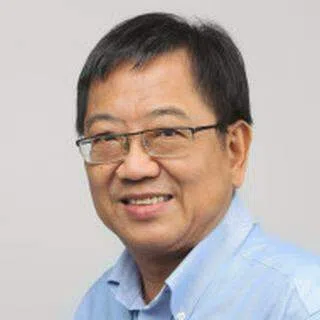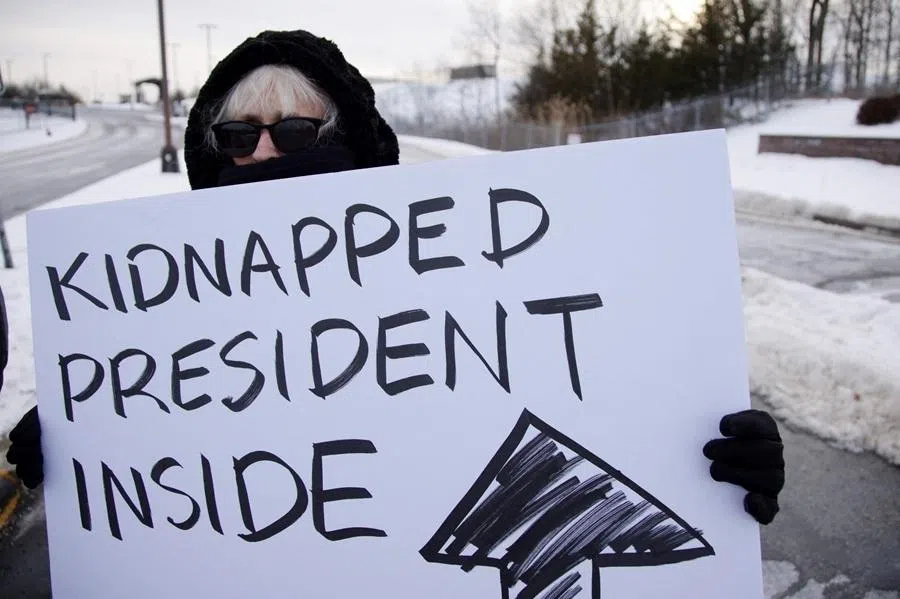Navigating China-US competition: A Singapore Chinese-language paper's experience
Former Zaobao editor Lim Jim Koon observes that zaobao.com was recently lumped in with "local media" of China in one of the Japanese media reports. Intentionally or not, this is one of the ways that Singapore's leading Chinese-language newspaper has sometimes been cast as pro-China or anti-China to suit the narratives of others. As China-US tensions intensify in the new Year of the Rabbit, the paper, and perhaps Singapore too, must brace itself for labels being cast on it, and keep vigilant in staying the course and guarding its own interests.
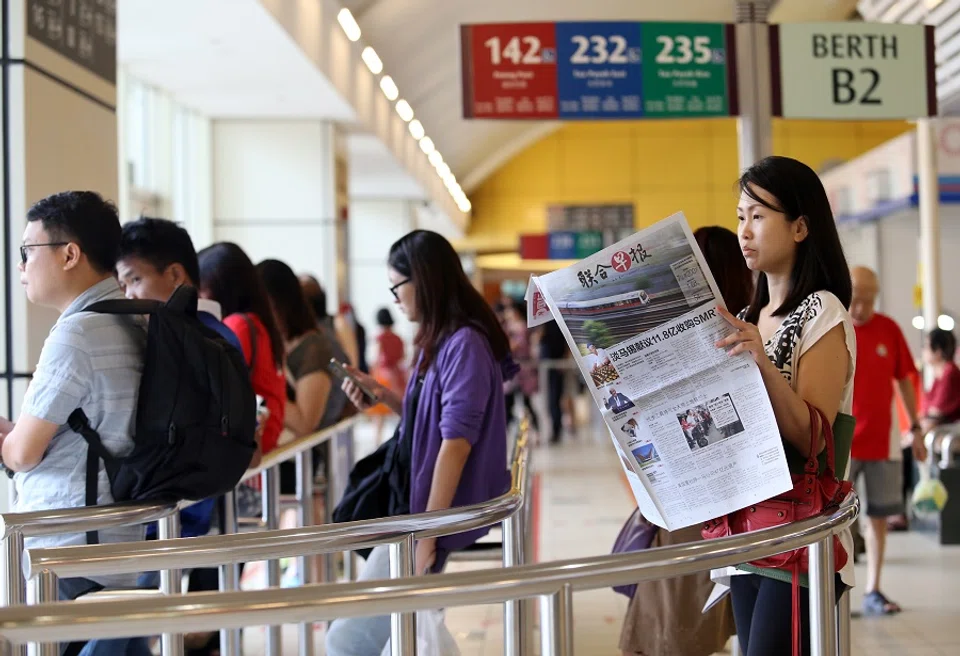
The Chinese year of the water rabbit (Gui Mao 癸卯) is arriving next week. The simple and pure image of the rabbit gives people hope for a year of good luck and peace. Yet, it seems like the year of the water tiger (Ren Yin 壬寅) is unwilling to leave, as it continues to bare its fangs and intimidate the people.
The Russia-Ukraine war that came in the Year of the Tiger is escalating, triggering inflation and hurting people badly. Extreme weather continues to ravage the world. Even the Covid-19 pandemic, which was thought to be subsiding, has changed course due to China's zero-Covid U-turn.
Not to mention the increasingly tense geopolitical situation. China-US rivalry intensified in the Year of the Tiger as the US and its allies strengthened their military presence in East Asia. Caught in the middle, most Southeast Asian countries chose to stay neutral for their own interests.
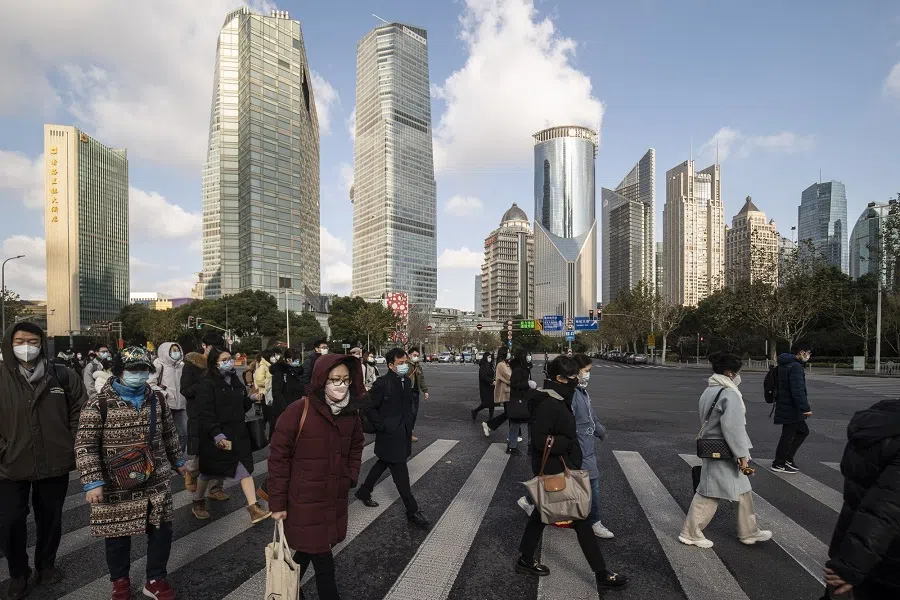
But China and the US are competing on all fronts and engaging in fierce propaganda and counter-propaganda wars targeting each other and others to expand their influence.
Lumping into categories
In the haze and confusion, people are befuddled and helpless, choosing sides haphazardly. Some countries or organisations have unwittingly "been given a side", while some media platforms have been caught in the crossfire.
Lianhe Zaobao is the latest example.
Towards the end of the Year of the Tiger on 29 December 2022, Japanese newspaper Nikkei published a lengthy article titled "China's Online Nationalist Army - How Social Media Users Weaponized Patriotism". From tracking and investigating China's Weibo accounts, the writers detailed the way the Chinese government and online patriots have been working together to fight a foreign propaganda war in controversies such as the China-US trade war, former US House Speaker Nancy Pelosi's visit to Taiwan, the origin of the coronavirus and the white paper revolution by spreading disinformation, manipulating the topic of ruhua (辱华, insulting China), stirring up nationalist sentiment and inciting xenophobia.
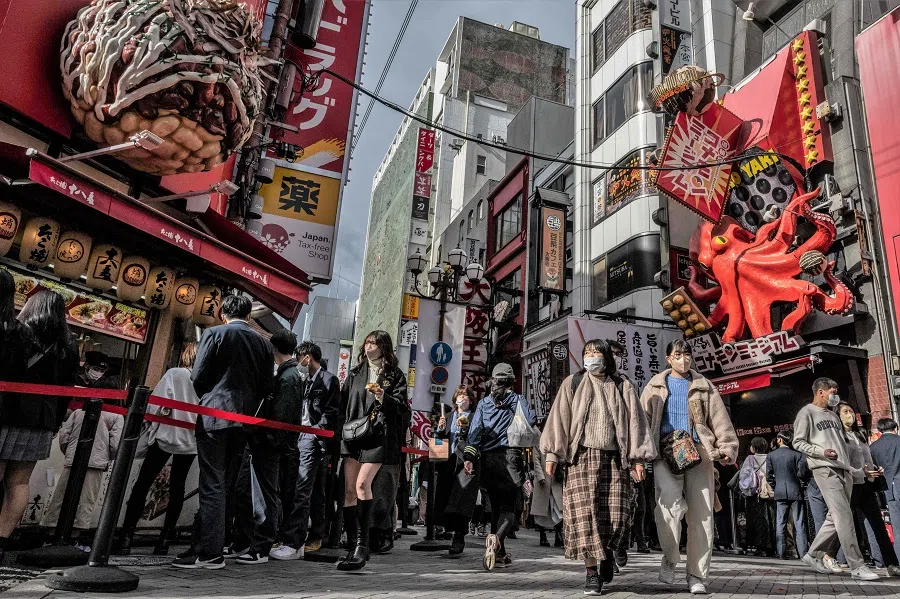
Nikkei data analysis found that such "ultra-patriotic campaigns", which were once openly led and directed by state media, are now dominated by individuals. The article came with an eye-catching circular media chart, categorising various state-controlled media, local media, and individuals into red, orange and purple circles respectively.
Large state-controlled media such as People's Daily, Xinhua News Agency, CCTV News and China News Service sit in the centre of the circle, while other local media and individuals surround the state media platforms and sit along the radial line of the circle extending towards its periphery. We-media accounts with massive followings such as "Chairman Rabbit" (兔主席), "Diba" (帝吧官微) and "Gu Yan Mu Chan" (孤烟暮蝉) are all listed on the circular chart.
But what's appalling is that Nikkei included Lianhe Zaobao's zaobao.com in the chart as well, turning it into a member of China's online nationalist army!
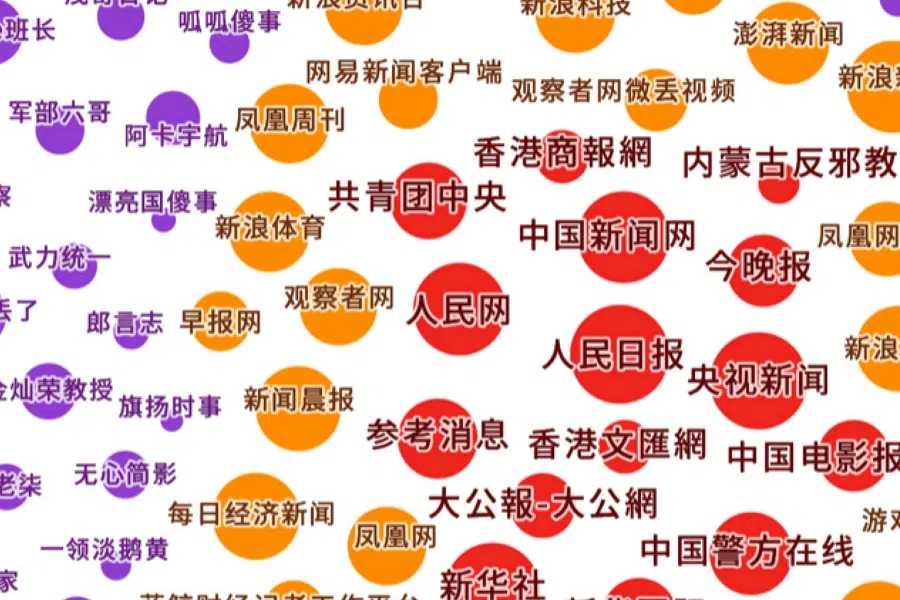
As Japan is clearly on the US's side in the great strategic competition between China and the US, it is not surprising that a Japanese media is involved in a propaganda war between both sides. Thus, the newspaper's exposé on China's so-called "grand external propaganda" and "little pinks" (young, nationalistic keyboard warriors) at this point in time is within expectations.
But what's appalling is that Nikkei included Lianhe Zaobao's zaobao.com in the chart as well, turning it into a member of China's online nationalist army! Indicated as an orange circle, Nikkei categorised zaobao.com as China's local media positioned on the "middle ring" of the concentric circle in between state-controlled media and we-media.
A smear campaign?
Lianhe Zaobao has been attacked by this propaganda war, and completely unprovoked at that!
Laughably, shortly after Nikkei published the article, Chinese online nationalist we-media account "Gu Yan Mu Chan" actually attacked the so-called "patriotic local media" zaobao.com for "learning from American teachers and teaching China how to do things". I wonder how Nikkei is going to explain such "infighting"?
Isn't it clearly choosing sides on behalf of Lianhe Zaobao? Is the move also intended to create divisions within Singapore?
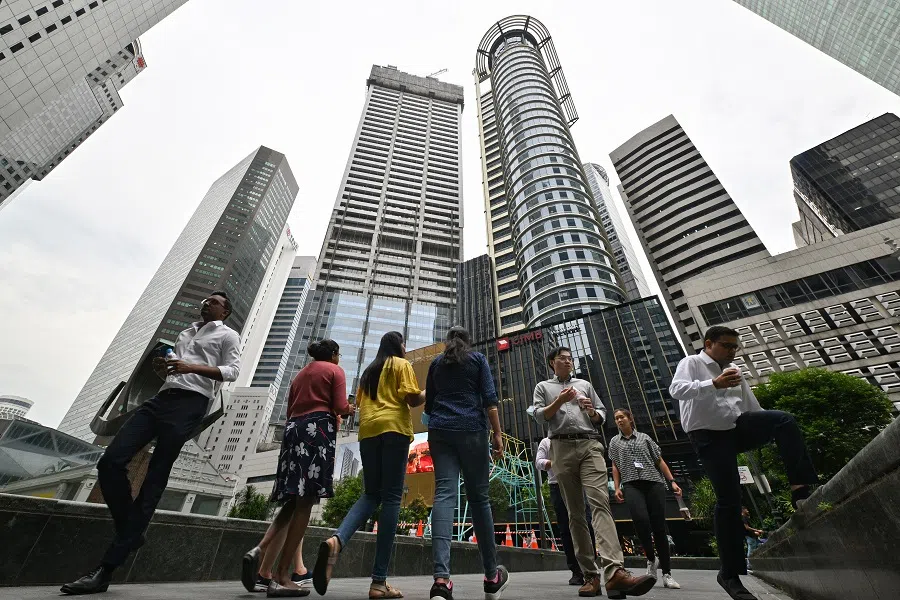
As a prominent newspaper with rich resources, Nikkei definitely knows that zaobao.com is a Singaporean media platform. So why did it still list the platform as a member of China's online nationalist army? Why did it deliberately smear Zaobao red?
Isn't it clearly choosing sides on behalf of Lianhe Zaobao? Is the move also intended to create divisions within Singapore?
In fact, this is not the first time Western (including Japanese) media or academia has tried to launch a "smear campaign" against Lianhe Zaobao. As Lianhe Zaobao is the leading Chinese-language newspaper in Singapore, the only Chinese-majority country outside of China, its unique identity seems to come with some sort of "original sin".
Not too long ago, American think tank The Jamestown Foundation published a report titled "A Preliminary Survey of CCP Influence Operations in Singapore" on 16 July 2019. Riding on identity politics, the report alleged that the Chinese Communist Party (CCP) uses united front tactics to exert influence through business associations, clan associations, cultural organisations, Chinese media outlets and other channels in Singapore to deliberately direct the country's public discourse and government policy.
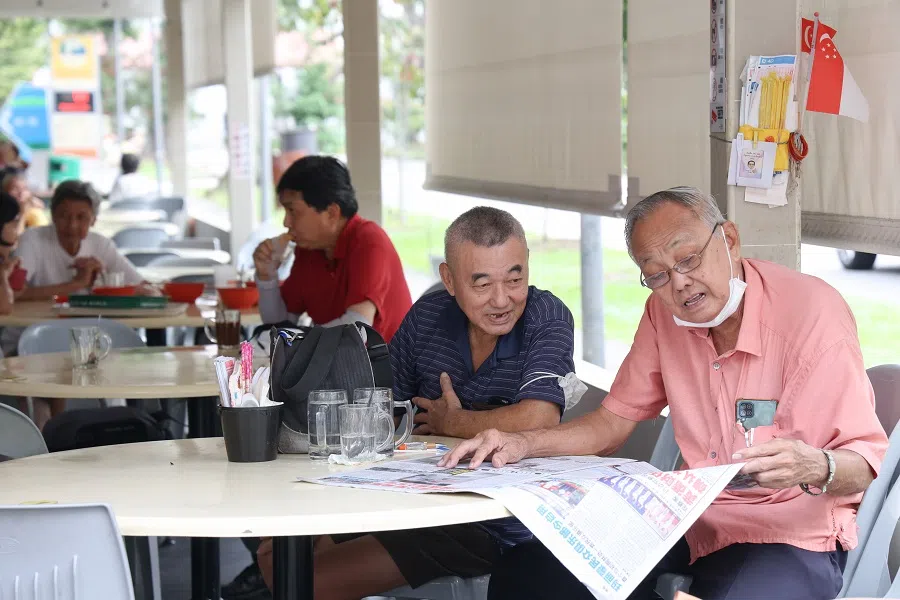
When speaking about China's media influence, the report specifically mentioned Lianhe Zaobao and questioned if the newspaper "might self-censor" because it relies on the Chinese market.
Coincidentally, The Economist also published a feature titled "The Embrace of the Motherland - Chinese Propagandists Court South-East Asia's Chinese Diaspora" on 20 October 2021, which insinuates that Zaobao is toeing the CCP line.
Western media's preconceived ideas or stereotypes about Zaobao are clearly exemplified by the Peng Shuai incident.
In November 2021, Chinese tennis star Peng Shuai talked about her personal relationship with a top politician in a private Weibo post, attracting global attention and debate. She then disappeared from the public eye, which led to speculation about her situation. She subsequently reappeared for the first time on 19 December 2021, and accepted an exclusive video interview from Lianhe Zaobao. She made clear three things in that interview: one, she has never talked or written about anyone sexually assaulting her; two, she has been living freely; and three, her email response to the Women's Tennis Association's CEO was according to her own wishes.
Besides reporting in detail on the conversation with Peng, Zaobao also uploaded the video footage, so that the audience could hear the exchange for themselves and see her demeanour, and infer that she was willing to be interviewed. This exclusive interview naturally drew enormous attention from international media, which carried Zaobao's reporting and shared the video in whole or in part.
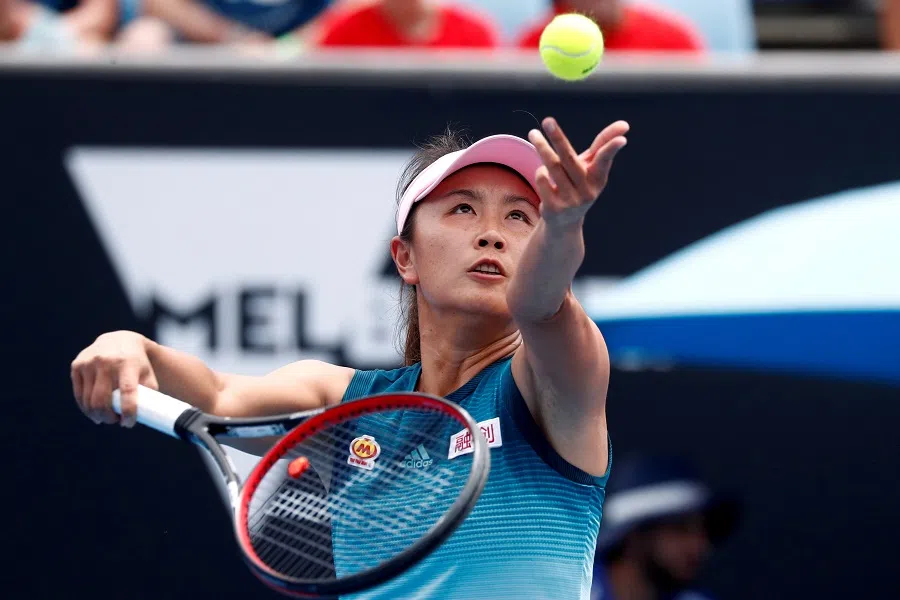
But perhaps because this interview did not carry the message that the Western media wanted to hear - particularly, no mention of "sexual assault" - they seemed to be a little grudging in their sharing, quoting Zaobao while labelling it, and trying to cast doubt on what Peng said by smearing Zaobao or accusing it of being pro-CCP.
They would give a simple background to Zaobao, such as saying, "Lianhe Zaobao is the only foreign Chinese-language newspaper that is approved for public circulation in China," which is true. But more often than not, there were labels such as "pro-Beijing", "speaking up for China", or "a newspaper like the CCP's Global Times, which provides a channel for pro-China propaganda". The more malicious ones dragged in the Singapore government and the Chinese community: "government-controlled", "in Singapore with its Chinese majority, Lianhe Zaobao tends to lean towards China".
The strangest thing is, even as Western mainstream media and local social media criticise Zaobao for being pro-China, there are some voices saying the complete opposite, accusing Zaobao of being anti-China.
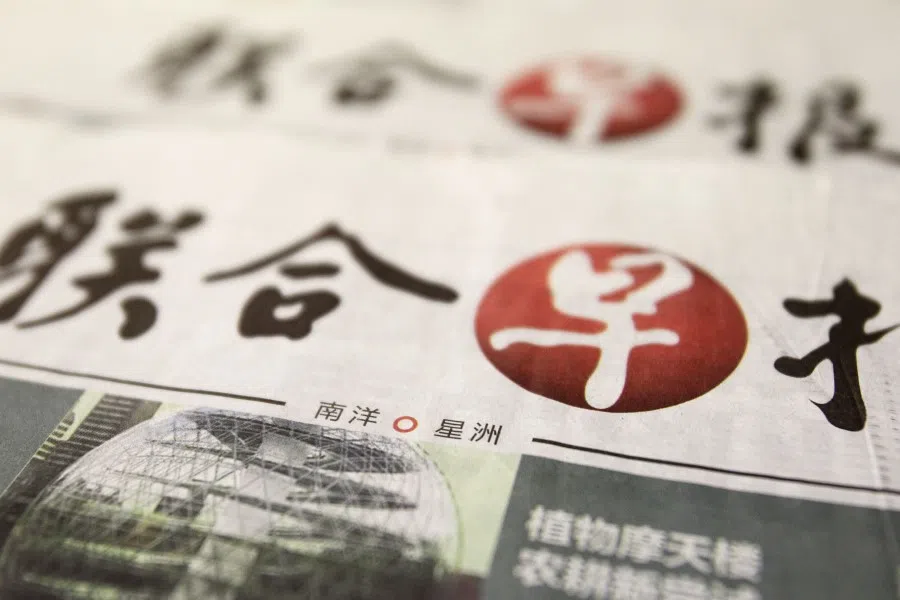
Zaobao cannot shake off the prejudiced view that Zaobao self-censors or is willing to be used just to get at the China market. As it happens, a well-known, long-established major US newspaper recently took a sudden interest in Zaobao, and its Singapore correspondent got in touch with me to talk about Zaobao's history and role in how Singapore guards against foreign influences.
Unsurprisingly, after the pleasantries, the discussion gradually centred on whether Zaobao self-censored in its reports and commentaries on China. I emphasised to the journalist that Lianhe Zaobao is an independent newspaper by Singaporeans for Singaporeans. It is not China media or a newspaper for overseas Chinese, and the fact that it happens to be popular among countless Chinese readers is precisely because it is a third eye on China, and holds to professional principles and objectivity in reporting and commenting on China. Zaobao is well aware that this is its greatest value to Chinese-language readers in China and overseas. This has always been its position, and it will not waver. Any accusations of CCP influence on Zaobao are empty and baseless.
But despite my repeated emphases, how the newspaper will carry the interview of course depends on US headquarters.
Cast as pro-China and anti-China
The strangest thing is, even as Western mainstream media and local social media criticise Zaobao for being pro-China, there are some voices saying the complete opposite, accusing Zaobao of being anti-China.
For years, such voices have not ceased online. Around the time that Nikkei said Zaobao was pro-CCP, social media in Singapore saw a personal email exchange between one Bill Liu and SPH Media Trust chairman Khaw Boon Wan, in which Liu accused The Straits Times (ST) of taking a "more biased", "less neutral" stance in its reports on China. He said ST seemed to "follow a trend of the Western media, in so-called 'China bashing' or 'demonising China'". While the email was mainly criticising ST, Zaobao was also mentioned in passing, that it was doing the same but "to a lesser extent".
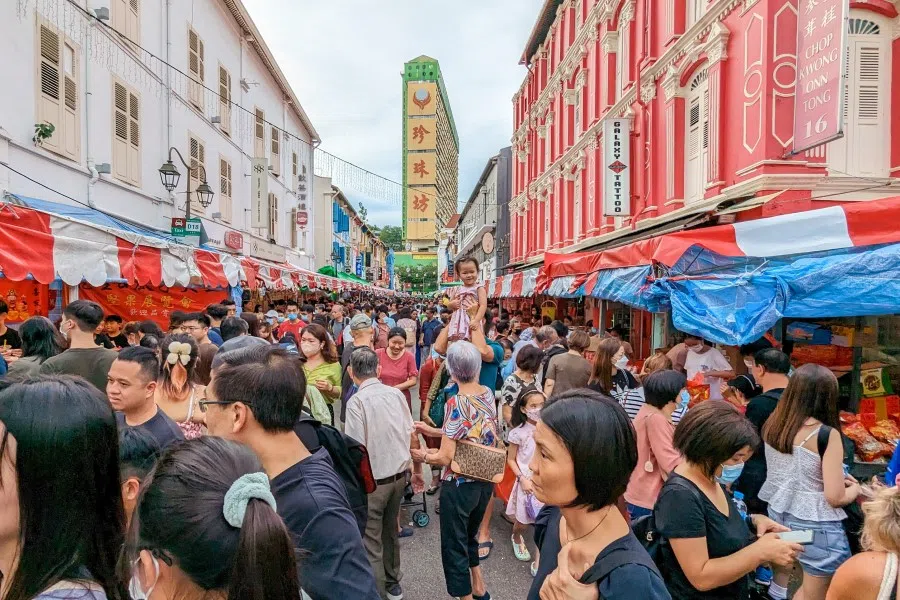
Once again, Zaobao became collateral damage, only this time the damage was less. But while Nikkei said Zaobao was pro-China, this gentleman felt Zaobao was anti-China - the exact opposite. In any case, this salvo came from someone who identified himself; whether or not one agrees, he is much more open about it than most other people who attack Zaobao anonymously or under a pseudonym.
Even while founding Prime Minister Lee Kuan Yew was still alive, someone cooked up a story online of how Mr Lee instructed Zaobao to carry "anti-China" reports...
Many of those who accuse Zaobao of being anti-China clearly cannot accept negative reports or criticisms of China, while some people are also deeply unhappy that Zaobao as a Chinese-language newspaper "does not see issues from the perspective of the Chinese people" and "does not speak up for China". These people often go online anonymously or under a pseudonym to mock Zaobao and even the Singapore government; some even target writers who criticise China's policies in their essays, calling them "traitors".
Some people have even conjured up conspiracy theories from their rich imagination. Even while founding Prime Minister Lee Kuan Yew was still alive, someone cooked up a story online of how Mr Lee instructed Zaobao to carry "anti-China" reports: "Lee issued injunctions to Lim Jim Koon in instructing Zaobao's correspondents in China... to carry anti-China news." Such a vivid description, as if he was there to witness Mr Lee "issuing injunctions" to me! This conspiracy theory has stood the test of time, so to speak - until two or three years ago, it was still being disseminated.
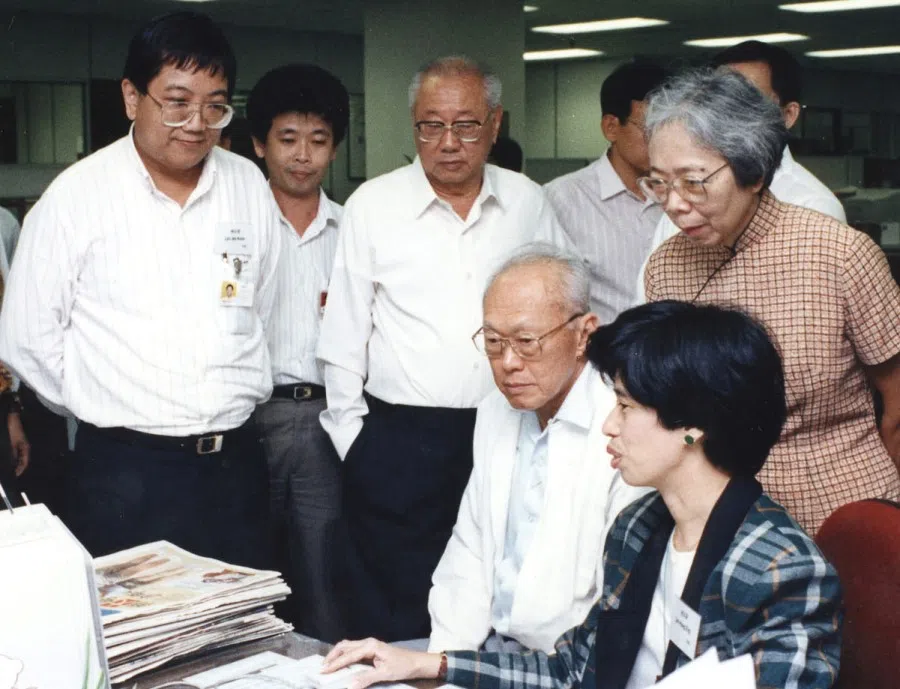
And this is how the attacks on Zaobao from left and right have never ceased. Zaobao colleagues are often caught in the middle; they feel troubled, and even discouraged. During my time there, I said to them: "For both left and right to criticise us for leaning to the other side, doesn't that show that we are neutral? An innocent person will be proven innocent. Why not be big about it and remain steady? As long as one holds to journalistic professionalism and objectivity and maintains high credibility, one's conscience would be clear."
I suddenly thought: it would be interesting to get people from both sides to come together for a public debate. It would definitely be a battle for the ages - sparks would fly, and who knows, things might even spin out of control.
Singaporeans need to improve their media literacy and judgement, and watch out for fake news, focusing on Singapore's interests rather than those of other countries so that they do not lose their bearings.
Of course, I am joking. But being categorised or shoehorned like this is no joke.
To some extent, Zaobao's situation also reflects Singapore's situation. In the current turbulent global climate, amid the cacophonous propaganda war between the major powers, Singaporeans need to improve their media literacy and judgement, and watch out for fake news, focusing on Singapore's interests rather than those of other countries so that they do not lose their bearings.
As the Year of the Tiger gives way to the Year of the Rabbit, the future still looks challenging and full of potential pitfalls. However, life goes on - as long as one stays clear-headed, there is no fear of any threat. And on that note, cheers to our dear readers!
This article was first published in Lianhe Zaobao as "左右夹攻 泰然自若--虎年岁末"被选边"的 《联合早报》".
